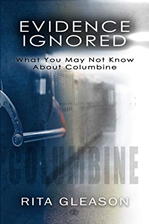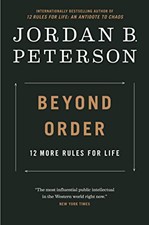 Evidence Ignored by Rita Gleason is about the Columbine school shooting. The title of the book is accurate. It is about the written evidence in the case, but so much “evidence” is ignored. The book examines the shooters’ secondary school experience; however, information about their relationships with their parents and their early childhoods is limited.
Evidence Ignored by Rita Gleason is about the Columbine school shooting. The title of the book is accurate. It is about the written evidence in the case, but so much “evidence” is ignored. The book examines the shooters’ secondary school experience; however, information about their relationships with their parents and their early childhoods is limited.
No one exists or is created in a vacuum. We are all coauthored by our environments, genetics, development, and community. Both boys who committed the murders were bullied and engaged in bullying, had little success with girls, and had multiple legal and disciplinary issues before they ever did the killings.
I agree with the author when she says at the end of the book, “We need to educate our kids to recognize that a student that is persistently in trouble or making threats may pose a true safety concern. The children see far more in class, in the hallways, and in the cafeteria than any adult.”
Having taught high school for nine years, that is so true. Educators know also. Educators know when there is a problem, and they often are ignored. The irony of the evidence is that the shootings could have been prevented with early identification procedures and coordination between the legal, educational, and mental health communities.
 I love the work of Jordan Peterson. I wish I had just half of his brain. Such amazing insight and understanding. I devoured his book 12 Rules for Life.
I love the work of Jordan Peterson. I wish I had just half of his brain. Such amazing insight and understanding. I devoured his book 12 Rules for Life.
This book, Beyond Order, is again exceptional and gives 12 more rules. A couple of his rules in particular stood out for me:
Rule 10 is: “Plan and work diligently to maintain the romance in your relationship.”
This is one of the most accurate writings I have read on the reality of romantic relationships and how to keep them alive. It is funny, to the point, and right on the money, including his information on the sexual nature of long-term relationships. He points out that a relationship must have 90 minutes of conversation a week to stay viable. (This is total minutes—five here, 15 there, etc.). If a couple spends less than that amount of time in conversation (often it is mundane), the relationship starts to atrophy.
Rule 1 is: “Do not carelessly denigrate social institutions or creative achievement.”
Nature and societies move from order to disorder to chaos back to order—from established social hierarchies and institutions to innovation and disruption, which create new models. “The danger stems from the counterpart to the corrupt but conservative processes that destabilize and destroy functional hierarchies: There are unethical radicals, just as there are crooked administrators, managers, and executives. These individuals tend to be profoundly ignorant of the complex realities of the status quo, unconscious of their own ignorance, and ungrateful for what the past has bequeathed to them. Such ignorance and ingratitude are often conjoined with the willingness to use tired cliches of cynicism to justify refusal to engage either in the dull but necessary rigors of convention or the risks and difficulties of truly generative endeavor.”
This speaks to America today.








